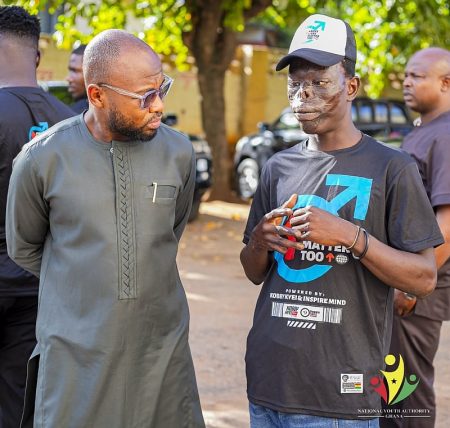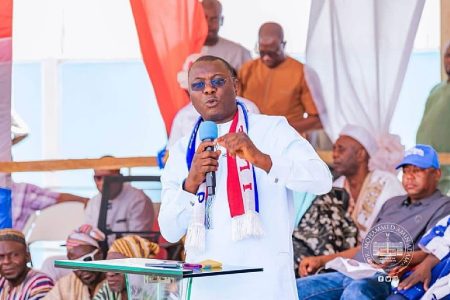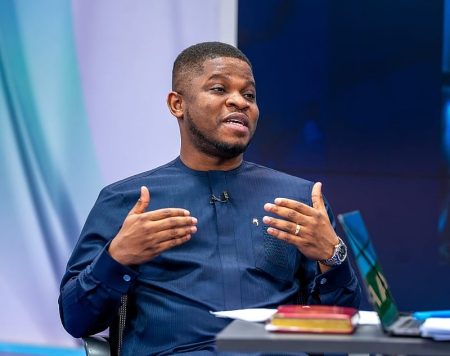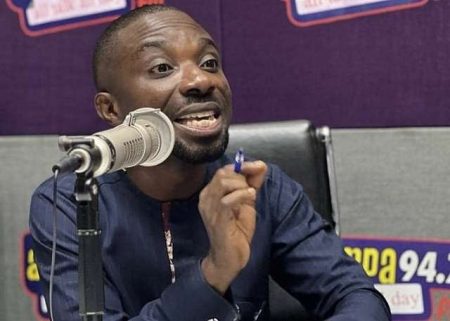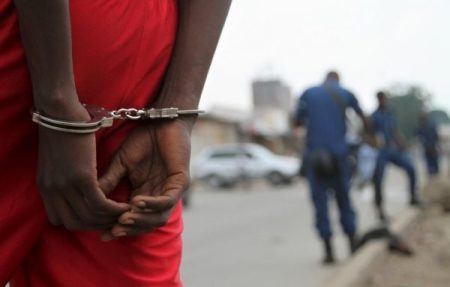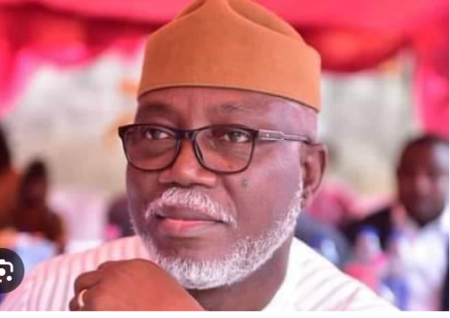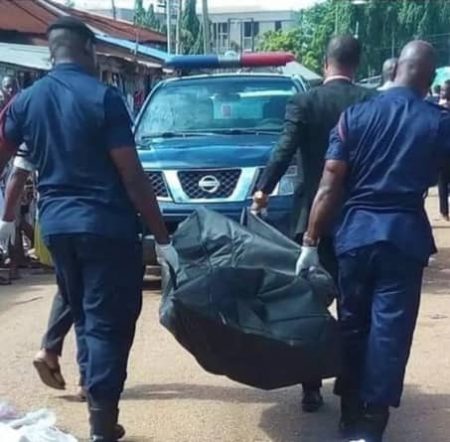Beatrice Annan, a Presidential Staffer and communicator for the National Democratic Congress (NDC), has refuted claims of unlawful treatment and human rights violations against Bernard Antwi Boasiako, also known as Chairman Wontumi, the Ashanti Regional Chairman of the New Patriotic Party (NPP), who is currently in the custody of the Economic and Organized Crime Office (EOCO). Annan asserts that Wontumi has been treated lawfully and in accordance with due process. She emphasized that he was granted bail on the same day of his arrest, counteracting allegations of prolonged detention. Annan also addressed rumors of Wontumi’s hunger strike, suggesting it is not a protest against EOCO but rather stems from a fear of being poisoned by members of his own party, recalling a previous incident where he allegedly believed he and John Kumah were poisoned.
This case has sparked a debate about the treatment of political figures within the legal system. The NPP has raised concerns about the handling of the Wontumi case, alleging potential political motivations behind the EOCO investigation and detention. They argue that Wontumi’s rights have been violated, citing the alleged harsh conditions of his detention and the supposed denial of access to proper legal representation. These allegations add fuel to the ongoing political tensions between the ruling NPP and the opposition NDC.
Annan’s statements offer a counter-narrative to the NPP’s claims. Her assertion that Wontumi was granted bail on the day of his arrest directly contradicts the NPP’s narrative of prolonged and unlawful detention. Furthermore, her explanation of the hunger strike, attributing it to internal party mistrust rather than a protest against EOCO, adds another layer of complexity to the situation. This internal discord within the NPP, as suggested by Annan’s claims, could potentially be exploited by political opponents.
The situation underscores the delicate balance between law enforcement and political activity. The NPP’s allegations raise questions about the potential for political interference in legal processes. It is crucial for law enforcement agencies like EOCO to maintain impartiality and transparency in their investigations to avoid perceptions of bias or political manipulation. The public scrutiny surrounding this case highlights the importance of upholding due process and respecting the rights of all individuals, regardless of their political affiliation.
The unfolding events surrounding Chairman Wontumi’s detention and the ensuing political debate will likely continue to capture public attention. The accusations and counter-accusations between the NPP and NDC underscore the deeply partisan nature of Ghanaian politics. As the case progresses, the focus will remain on whether the legal proceedings are conducted fairly and impartially, ensuring that justice is served without being influenced by political considerations. The outcome of this case could have significant implications for the political landscape in Ghana, particularly in the lead-up to future elections.
The allegations surrounding Wontumi’s detention, his hunger strike, and the claims of internal NPP conflict all contribute to a complex and evolving narrative. As the legal process unfolds, it remains essential for all parties involved to prioritize due process, transparency, and respect for individual rights. The case serves as a stark reminder of the challenges faced in maintaining the rule of law within a highly charged political environment. The public will undoubtedly continue to scrutinize the actions of both the involved parties and the legal authorities, emphasizing the need for a fair and impartial resolution to this politically sensitive case.






